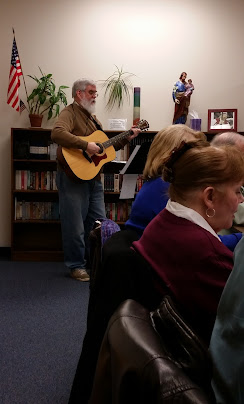Barney Casey became one of Detroit’s best-known priests even though he was not allowed to preach formally or to hear confessions!
Barney came from a large family in Oak Grove, Wisconsin. At the age of 21, and after he had worked as a logger, a hospital orderly, a streetcar operator, and a prison guard, he entered St. Francis Seminary in Milwaukee—where he found the studies difficult. He left there, and in 1896, joined the Capuchins in Detroit, taking the name Solanus. His studies for the priesthood were again arduous.
On July 24, 1904, Solanus was ordained, but because his knowledge of theology was judged to be weak, he was not given permission to hear confessions or to preach. A Franciscan Capuchin who knew him well said this annoying restriction “brought forth in him a greatness and a holiness that might never have been realized in any other way.”
During his 14 years as porter and sacristan in Yonkers, New York, the people there recognized Solanus as a fine speaker. James Derum, his biographer writes, “For, though he was forbidden to deliver doctrinal sermons, he could give inspirational talks, or feverinos, as the Capuchins termed them.” His spiritual fire deeply impressed his listeners.
Father Solanus served at parishes in Manhattan and Harlem before returning to Detroit, where he was porter and sacristan for 20 years at St. Bonaventure Monastery. Every Wednesday afternoon he conducted well-attended services for the sick. A co-worker estimates that on the average day 150 to 200 people came to see Father Solanus in the front office. Most of them came to receive his blessing; 40 to 50 came for consultation. Many people considered him instrumental in cures and other blessings they received.
Father Solanus’ sense of God’s providence inspired many of his visitors. “Blessed be God in all his designs” was one of his favorite expressions.
The many friends of Father Solanus helped the Capuchins begin a soup kitchen during the Depression. Capuchins are still feeding the hungry there today.
In failing health, Solanus was transferred to the Capuchin novitiate in Huntington, Indiana, in 1946, where he lived for ten years until needing to be hospitalized in Detroit. Father Solanus died on July 31, 1957. An estimated 20,000 people passed by his coffin before his burial in St. Bonaventure Church in Detroit.
At the funeral Mass, the provincial Father Gerald said: “His was a life of service and love for people like me and you. When he was not himself sick, he nevertheless suffered with and for you that were sick. When he was not physically hungry, he hungered with people like you. He had a divine love for people. He loved people for what he could do for them—and for God, through them.”
In 1960, a Father Solanus Guild was formed in Detroit to aid Capuchin seminarians. By 1967, the guild had 5,000 members—many of them grateful recipients of his practical advice and his comforting assurance that God would not abandon them in their trials. Solanus Casey was declared Venerable in 1995, and beatified on November 18, 2017.
- From Franciscan Media
(FYI - Blessed Solanus Casey is my Franciscan Patron Saint.)













.jpg)

.jpg)













%20better.jpg)




